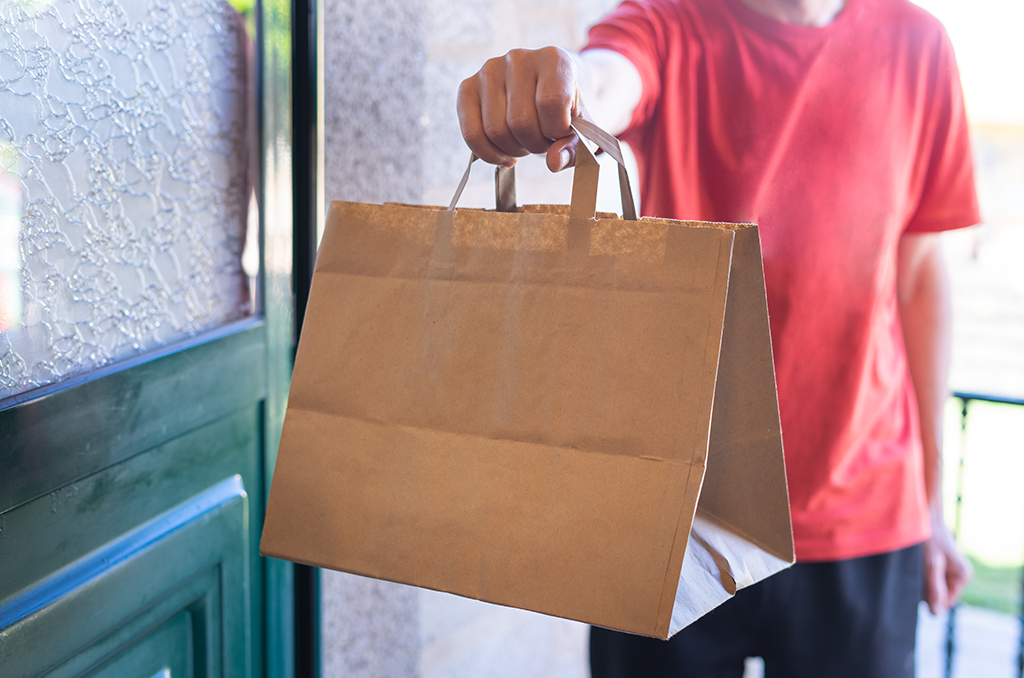
What Lies Ahead for Home Delivery?
- foodfightadmin
- October 9, 2023
- Find Food, Food Bank Support, Report
- rsc pages, rscl
- 0 Comments
Despite Waning Pandemic Aid, Food Banks Committed to Sustaining and Expanding Home Delivery Services
Earlier this year, reports were released on the dilemma faced by food banks regarding home delivery services: whether or not they could be sustained as pandemic era aid began to dwindle. A recently released report by the Urban Institute now sheds light on the situation. The study reveals the vast majority of food banks — 83% — intend to persist with home delivery services, with 59% planning on expanding this service. The report, financed by DoorDash, includes responses from 103 anti hunger organizations, primarily food banks.
These findings underline the considerable demand for home deliveries, despite the associated operational challenges. An impressive 93% of anti hunger organizations surveyed recognized that home deliveries have been pivotal in reaching individuals who might be unable to access food due to transportation, health, or other constraints.
During the COVID-19 crisis, when aid was plentiful, home delivery services prospered. By year’s end, DoorDash had delivery partnerships with over 300 nonprofit organizations across all 50 states. Recognizing the need for fiscal sustainability, DoorDash commenced dialogue with nonprofits regarding the transition from full financial backing to subsidized rates.
Such conversations compelled food banks to financial introspection, examining the feasibility of continuing an undeniably essential but expensive service. As DoorDash has backed away from full support, some benefactors have stepped in to provide grant funding, while government aid remains elusive.
For instance, following DoorDash‘s withdrawal, Second Harvest of the Greater Valley, based in Manteca, California, has pivoted towards other funding sources. Currently, this food bank delivers to 1,500 homes per week and plans to maintain this service for at least another three years, as stated by Keenon Krick of Second Harvest.
The food bank’s engagements with DoorDash throughout the pandemic bolstered the delivery program from 200 to 300 weekly deliveries. At present, the hiring of part time drivers and home deliveries are financed by grant funding and the food bank‘s independent fundraising. According to Krick, the bank has managed these changes effectively.
An additional focus for this food bank—underpinned by Krick’s former position as Executive Director of United Cerebral Palsy—is to serve seniors and medically fragile individuals. Besides championing deliveries, the bank is implementing a commercial kitchen to transition from grocery bags to delivering prepared meals.
However, DoorDash continues to be central to many food banks’ at home delivery operations. The survey reveals that 45% of organizations provide home delivery primarily through DoorDash. Alternatives include dependence on volunteers (58%) and paid staff (10%).
While a vast majority of these delivery operations supported by DoorDash cater to under 100 people monthly (55%), 34% serve between 100 and 500 people. A marginal 5% deliver to more than 500 people. Almost all prioritized serving seniors (92%), individuals with disabilities (85%), and those without access to transportation (83%).
Although DoorDash partnerships have facilitated home delivery demands, they have also introduced complications. Around 76% of DoorDash partners reported having to address grievances, including food delivery errors or unresponsive and discourteous drivers. Technological hurdles, like managing digital sign-ups, were problematic for 37% of organizations, and 32% reported insufficient staff capacity to oversee home delivery logistics.
Ultimately, the issue of funding emerged as the most significant barrier to home delivery expansion, alluded to by 97% of respondents. Other obstacles include a lack of funding for food (51%), inadequate staff capacity for enrollment and box packing (38%), and insufficient technology infrastructure to manage the program (16%). The report concluded that securing sustainable funding sources will be integral to dictating the future of home delivery.








